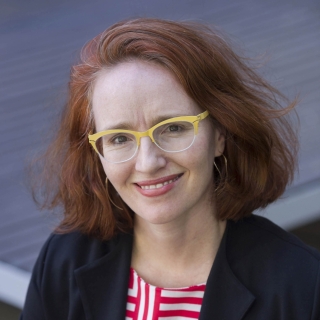Carolyn Hendriks
Professor of Public Policy and Governance
Qualifications
B.E. (Environmental) (1st Class Hons, UNSW) PhD in Political Science (ANU)
Current and past research projects
2024-2028 Strengthening Political Representation in an era of democratic change (a four-year Australian Research Council Future Fellowship): This project that aims to understand and strengthen how politicians represent their constituents. As trust in politics declines, there is more pressure on politicians to engage with citizens. Understanding how these demands are reshaping the representative work of politicians is crucial to building trust and legitimacy in modern democracies. By interviewing and observing Australian politicians, this research will build important knowledge about the dynamics, demands and practices of contemporary representation. A national and international audit of novel ways to engage constituents will lead to valuable resources that politicians and citizens can use to assess and improve representative relationships, enabling stronger democratic institutions.
2018-2023 Citizen-led governance: Finding practical ways to engage citizens in their democratic systems is a central challenge in contemporary politics when many institutional practices frustrate the public. This project examines a little known pathway for deepening citizen engagement in the democratic process that manifests in citizens’ practical policy work. It focuses on a specific kind of citizen-led governance in which citizens take proactive steps to provide collective goods and services, for example by establishing a civic enterprise or cooperative. Drawing on insights from empirical cases, this project characterizes the novel democratic work of citizen governance initiatives; drawing attention to how these collective reform endeavours can foster citizen agency and broader community buy-in. More broadly, the project seeks to understand what we might learn from these initiatives about how empowered citizens can work congruously with state and non-state entities to promote participatory governance, even in contexts plagued by low levels of institutional trust and severe economic inequalities. (with Prof Albert Dzur)
2021-2024 Transforming Democracy in the Bush: A Study of Politics in Rural Australia (an Australian Research Council Special Research Initiative Project): This project aims to examine changing patterns of political participation and representation in rural Australia. Almost one third of Australia’s population lives outside major cities yet little is known about the political dynamics underway in contemporary rural Australia as it faces major demographic, economic and environmental change. Through in-depth case research involving a survey, interviews, and focus groups, this project will analyse how rural Australians participate in politics, the interests they seek to advance and the efficacy of their activities. The project will build Australian research capacity in rural politics and identify reform opportunities to enhance the capacity of our democracy to engage and represent diverse constituencies. (with A/Prof Anika Gauja and Prof Darren Halpin)
(2014-2017) Realising Democracy Amid Communicative Plenty (Australian Research Council Discovery Project together with Prof John Dryzek, Dr Selen Ercan, A/Prof Paul Fawcett and Dr Michael Jensen): The ever-increasing volume of political communication (especially online) challenges democracy and effective policy making. This project examines whether, how, why, and to what effect discourse flows within and between different deliberative sites in the new politics of communicative plenty. We apply the idea of deliberative democracy, which puts meaningful communication between citizens and policy makers at the heart of effective governance. It develops a deliberative analysis of controversy surrounding coal seam gas in Australia, using qualitative and ‘big data techniques to collect information.
(2014-2017) Understanding how, and to what effect deliberative forms of public engagement connect to institutions of representative democracy: I have been undertaking a series of empirical projects examining how participatory forms of public engagement work alongside the norms, actors and structures of representative democracy. One project specifically looks at connections between mini-publics and legislative committees.
Updated: 17 July 2024/Responsible Officer: Crawford Engagement/Page Contact: CAP Web Team











